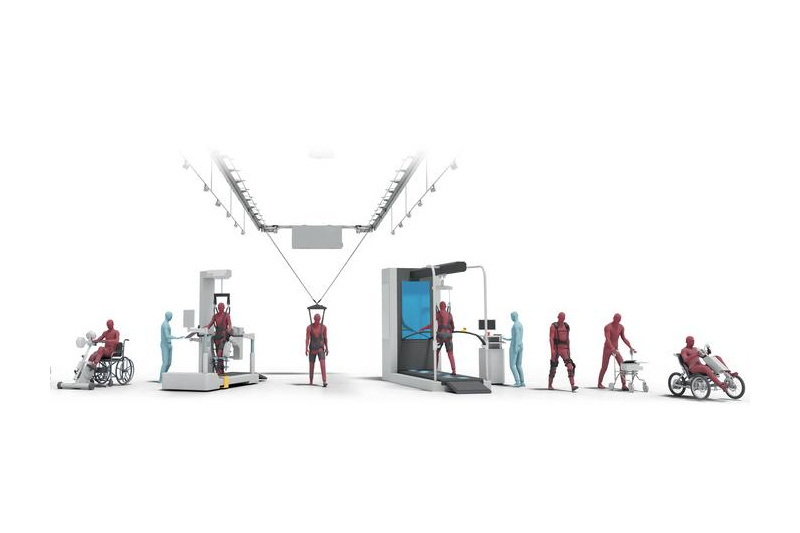

Personalized skin graft to treat skin defects
Picture: ©Wyss Zurich
CUTISS is a company with a vision: To use personalized skin grafts to heal people all over the world with skin defects, including burn victims. The UZH spin-off has developed a novel procedure whereby a postage-stamp-sized biopsy of healthy skin is harvested from the patient. This is then bioengineered to create a skin graft around 70 times larger in size in around a month. The skin produced in the lab and subsequently transplanted is elastic and grows with the patient. It is expected to result in less scarring than with conventional grafts and to provide a significantly better quality of life for patients.
Taking development to market maturity
While the ground-breaking idea and its underlying innovative technology are in place and the first clinical safety trials have been successfully completed, the skin substitute – unique anywhere in the world – isn’t yet ready for market. The production process has to be automated to enable the skin grafts to be used on a broad basis. This will require further investment – which is precisely where the UZH Life Sciences Fund comes in. With an investment of one million Swiss francs, the fund is enabling CUTISS to take the next steps in moving its business forward and accelerating the development of a marketable product.
“This funding will enable us to tackle the challenge of automating the process for cultivating skin, allowing us to produce skin grafts more quickly and cost-efficiently,” explains CUTISS CEO Daniela Marino, a biologist whose research into novel skin substitutes goes back to 2009. The method for producing personalized skin transplants was developed by the Tissue Biology Research Unit of the Department of Surgery of the University Children’s Hospital in Zurich.
Accelerating the transfer of knowledge into practice
CUTISS is the first spin-off in which the UZH Life Sciences Fund has invested. Over the next six years the fund plans to provide start-up financing for further young companies, focusing on UZH spin-offs in life sciences and biotechnology with business ideas based on research done at the university. UZH supports entrepreneurial researchers within its ranks who are launching start-ups. The aim is to accelerate the development process of spin-offs, which have a particularly hard time raising funds in the early phase of their life cycle.
“It takes a long time to develop marketable applications, especially in the life sciences, and clinical trials are expensive,” says Michael Hengartner, UZH president and a member of the UZH Life Sciences Fund board. “The UZH Life Sciences Fund accelerates the transfer of research findings from UZH into clinical practice, which ultimately benefits patients and the public at large.”
Two equal partners with a shared goal
The UZH Life Sciences Fund involves two equal partners: the UZH Foundation and the Novartis Venture Fund. “We share the goal of promoting innovation in the Swiss life science and biotechnology sectors,” explains Anja König, Global Head of the Novartis Venture Fund. Investment decisions are made by a committee comprising equal numbers of representatives from the UZH Foundation and the
Novartis Venture Fund.
The fund aims to amass a total of 20 million Swiss francs, with the two partner funds contributing half each. The UZH Foundation’s share of the funding will come from donations. Three million francs have been raised so far; seven million still have to be found. The Novartis Venture Fund matches the contributions raised by the UZH Foundation. Any revenues flowing back from the spin-offs remain in the UZH Life Sciences Fund for investment in further spin-offs.
Innovation at UZH
Pure research provides fertile ground for innovation. UZH is one of the most innovative universities in Europe. Many successful discoveries at UZH have been translated into new products. More than 100 spin-offs have been established at UZH since 1999. These new companies have a very high rate of survival, with more than 94% still in operation after five years. UZH also has a portfolio of more than 300 licenses in the fields of biotechnology, medical technology, information and computer technology, and multimedia.
UZH Foundation
The UZH Foundation seeks donations and bequests from private individuals, foundations, and companies to achieve its fundamental goal of promoting excellence at the University of Zurich. By giving support, donors become part of the ground-breaking work done by University of Zurich researchers. Donations to the UZH Foundation accelerate the progress made in research and education, bringing benefits to society at large.
http://www.uzhfoundation.ch/en/
www.nvfund.com Contact:
Media Relations
University of Zurich
Tel.: +41 44 634 44 67
E-mail: mediarelations@kommunikation.uzh.ch
Daniela Marino, PhD
Cutiss AG
Tel.: +41 76 230 80 46
E-mail: daniela.marino@cutiss.swiss
http://www.media.uzh.ch/en/Press-Releases/2017/UZH-Life-Sciences-Fund.html














